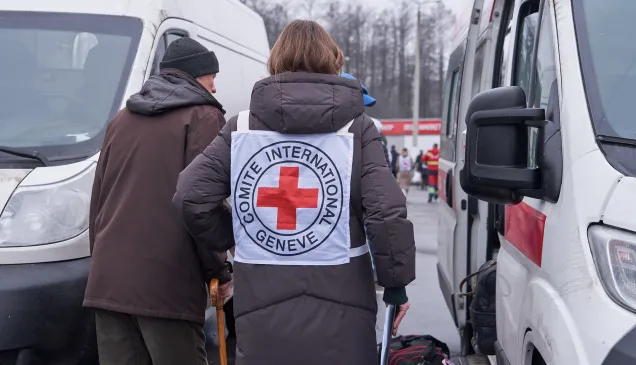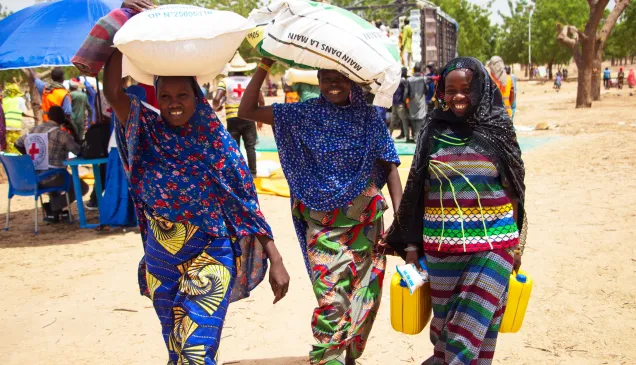Nuclear weapons
Since the first and only use of nuclear weapons in 1945, the international community has wrestled with the issue of how the law of war applies to such weapons.
For decades the discourse about nuclear weapons was focused on their military and security aspects and concerns about their proliferation. Increasingly, however, the debate is expanding to include a focus on their international humanitarian law (IHL) implications, as well as their catastrophic humanitarian consequences.
While a number of international agreements to limit the development and proliferation of nuclear weapons were already in place, these weapons were only internationally prohibited in 2017, when the Treaty on the Prohibition of Nuclear Weapons (TPNW) was adopted.
The International Red Cross and Red Crescent Movement had been calling for a ban on nuclear weapons since 1945 and welcomed the adoption of the TPNW as a historic and long-awaited step towards their elimination. Given current regional and international tensions, the risk of nuclear weapons being used is the highest it has ever been since the Cold War.
To ensure that nuclear weapons are never used again and are completely eliminated, the Movement calls on States to join the ban treaty and to fulfil their longstanding nuclear disarmament obligations and commitments.
Banning nuclear weapons is justified on humanitarian, moral, and legal terms. Nuclear weapons are the most destructive weapons ever created and their testing and use would have catastrophic humanitarian consequences.
These consequences result from the heat, blast and radiation generated by a nuclear explosion and the distances over which these forces may be spread. As was seen from the bombings of Hiroshima and Nagasaki in 1945, the detonation of a nuclear weapon in or near a populated area can cause enormous numbers of casualties and extensive damage to civilian infrastructure.
It can destroy medical infrastructure and services making the provision of aid and assistance almost impossible, demonstrating the lack of adequate humanitarian response capacity in the immediate aftermath. Many of those who survive the blast will fall victim to radiation sickness in the weeks and months that follow, while others face an increased risk of developing certain cancers later in life.
In 1996 the International Court of Justice concluded that the use of nuclear weapons would be generally contrary to the principles and rules of IHL. The Court also decided that States were under an obligation to pursue and conclude negotiations leading to nuclear disarmament.
With the recent adoption of the ban treaty, the legal framework towards the elimination of nuclear weapons is stronger than ever. By joining it, States are fulfilling their responsibility to protect humanity from nuclear catastrophe, based on a vision of security without nuclear weapons, a security that is more viable and humane.



